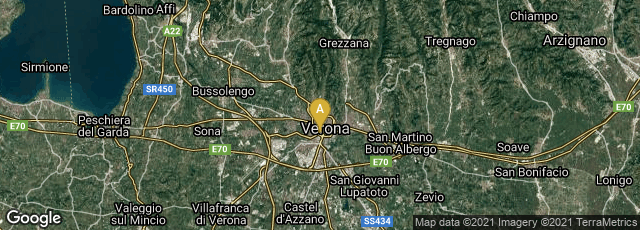

In 1345 Italian scholar, poet and humanist Francesco Petrarca (Petrarch) discovered Cicero's Letters to Titus Pomponius Atticus in the Biblioteca Capitolare della Cattedrale di Verona. These letters, which Cicero wrote to his friend Atticus, brought to light elements of Cicero's private or "human" character as compared to his public persona that had been lost in the Middle Ages since the 12th century. Because Atticus was a publisher, and there are no letters from Atticus in the collection, it has been understood that these letters were intended for publication, but, since they contain unfavorable comments about men then still living, it is assumed that the letters were not published before Cicero's death in 32 BCE. Their discovery, or rediscovery, by Petrarch is often credited with "initiating the 14th century Renaissance".
One key issue in the 14th century origins of the Renaissance was that it appears to have depended mainly on the work of relatively few scholars, researchers, and collectors of classical texts, of whom the best known are Petrarch, Giovanni Boccaccio, Coluccio Salutati, and Poggio Bracciolini. Of the four, Petrarch was dubbed the "Father of Humanism" because of his scholarly passion for ancient Greek and Roman texts. Some were in holy orders, like Petrarch, while others were lawyers and chancellors of Italian cities, and thus had access to scriptoria, such as Petrarch's disciple Salutati, the Chancellor of Florence.
The manuscript sources that Petrarch found were identified long ago, though some no longer exist. According to Robert F. Leighton, "The Medicean Mss. of Cicero's Letters," Trans. Am. Phil. Assoc., 21 (1890) 59-87,
"[p. 59] the codex containing the correspondence with Brutus, the letters to Atticus, and Quintus Cicero, to enumerate the collections in the order they stand in the codex, is catalogued as Cod. Med. Plut. xlix, No. xviii, and is generally considered to be a copy made by Petrarch in the fourteenth century. [This is dated 1389, and is typically referred to as Codex M in editions of the Letters to Atticus. In August 2019 I could not find a digital facsimile of this codex on the Bibliotheca Medicea Laurentiana website.]
"[p. 60] The other codex, that containing the letters ad Fam., catalogued as Cod. Med. Plut. xlix, No. vii, is a copy, also ascribed to Petrarch, made in the fourteenth century from a Vercelli codex, which dates from the eleventh century, and which was regarded until recently as the sole authority for the text of the letters it contains. This opinion...has been...overthrown by the discovery of two exceedingly valuable independent codices, one of which I collated in 1876, the Harleian, No. 2773, now in the British Museum....
"[p. 60] The rediscovery of Cicero's letters after their disappearance towards the middle of the twelfth century has been ascribed by scholars with great unanimity to Petrarch. According to Orelli, who was one of the first to collect and critcially examine the evidence in regard to the history of these Mss, Petrarch discovered the archetypes of these Medicean Mss, that containing the Atticus collection at Verona, in 1345, the other somewhat later, probably at Vercelli, and made copies from both with his own hand, which are the transcripts in question, now in the Laurentian Libary [Biblioteca Medicea Laurentiana, Florence], catalogued as I have described. One of the original codices has also been preserved, and is still in the Laurentian Library by the side of these copies, viz., that containing the letters ad Fam. It is catalogued as Cod. Med. Plut. xlix, No. ix. The other original codex, that containing the letters to Atticus, Q. Cicero, Brutus, etc., is lost....
"[p. 66] The chief evidence of Petrarch's having found Cicero's letters is his own famous letter to Cicero in the other world, dated 'apud superores' Verona, June 16, 1345. This letter is assumed to have been penned by Petrarch on the spot where the find was made, and in the first joy and excitement of his great discovery. Epistolas tuas diu multumque perquisitas at atque ubi minime rebar inventas avidissime perlegi are the opening words. The place of finding the codex has been inferred from the fact that the letter is dated Verona. The find evidently might have been made elsewhere, and the letter announcing it written after Petrach's return to Verona....
"[p. 68] As to the exact locality in Verona where the codex was found we know nothing more than the opening words of Petrarch's letter tell us: ubi minime rebar inventas, i.e., not in a library, not where books were usually kept. Coluccio, in the letter referred to speaks of the find being made in a church....From Petrarch's description of the Ms. containing the letters he found, we may infer that it was then in a bad condition; its leaves were torn and eaten; it was senio obrutas. Petrarch also tells us that he copied the letters with his own hand, because they were inaccessible to common copyists. He further states that he was actuated to this labor both from a desire to possess (habendi cupiditas) these priceless treasures, and also from a lack of confidence in the accuracy of common scribes and their ability to decipher the writing already somewhat indistinct and in some places nearly illegible."
Note that Leighton's paper continues with a lengthy discussion of the history of the codices mentioned in this quotation, as well as later copies of those codices, and the Renaissance and later scholars who owned them.
In 1921 Albert C. Clark presented further details regarding Petrarch's discovery in a paper entitled "The Reappearance of the Texts of the Classics," Trans, Bibl. Soc. New Ser. 2, No. 1, 13- 42, the text of which is also available at tertullian.org. From this I quote:
"His [Petrarch's] great discovery, which was made in 1345 consisted of Ciceo's Letters to Atticus, a very rare work in the Middle Ages. The manuscript belonged to the library of the cathedral at Verona. Although Petrarch was the first person to proclaim the discovery to the world, and to make a copy of the manuscript, it was previously known to the author of a work known as Flores Morales, written at Verona in 1329, and to [Guglielmo da] Pastrengo, the writer of an encyclopaedia, who was a friend of Petrarch and lived in Verona. We may, therefore, suspect that Pastrengo brought the mauscript to Petrarch's notice. It is from this memorable year that modern knowledge of Cicero dates. To previous ages he had been superhuman, 'the god of eloquence', free from all mortal weakness. Petrarch now found that his idol was a mortal man, weak, timorous, and vacillating. He wrote a famous letter, dated June 1345, from 'Franciscus Petrarcha among the living' to Cicero in which he records his emotions. He says:
"'I read very early thy letters for which I had made long and anxious search, and which I found where I least expected them. I heard thee speaking at length, making many complaints, oft changing thy tone, Marcus Tullius. Long ago I had known thee as the counsellor of others, now at last I know what thou wert unto theyself. Listen in thy turn, wheresoever thou art, to this lament, I will not call it counsel, prompted by true love, which one of thy posterity, devoted to thy name, pours forth amid his tears. Thou ever restless and anxious, or to quote to thee thine own words thou headstrong and ill-starred elder, what hadst thou to do with all this strife and with feuds which could not profit thee? Why did the false glamour of glory entangle thee when old in the battles of younger men, and after a stormy career drag thee to a death unworthy of a philosopher? Alas, forgetful of thy brother's advice and all thy own sound maxims, like a wayfarer at night bearing a lantern in the darkness, thou didst shew a path to them that were to follow, and didst thyself stumble in piteous fashion.' He reproaches Cicero for the inconsistency of his behaviour towards Caesar and Pompey, and for attacking Antony, while allying himself with Octavian. He winds up by saying: 'I grieve as a friend for thy sake. I am ashamed and sorry for thy errors, and, like Brutus, I set at nought the accomplishments for which I know thee to have been 'so remarkable. What good is it forsooth to teach others, 'to speak ever in flowery language about the virtues, if thou dost not meanwhile listen to thyself ? How much better it would have been, for a philosopher above all men, to have grown old in the quiet of the country, thinking, as thou thyself sayest somewhere, of the eternal life, not of this short one here; never to have held the fasces, to have coveted triumphs, to have been puffed up with the thought of Catiline? But this is now too late. Farewell for ever, dear Cicero. Written among the living, on the right bank of the Adige, in the Italian city, Verona, beyond the Padus on the 16th of June, in the year 1345 after the birth of the God whom thou knewest not.'"